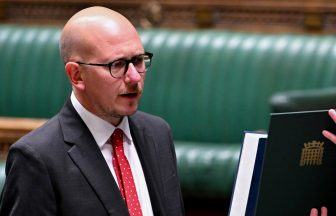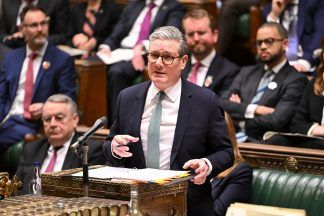That the UK and Scottish Government will continue to be at loggerheads over both Brexit and independence is the most obvious statement of a constitutional stand-off that it is possible to make.
But there could be another impending fight on the horizon over Nicola Sturgeon’s plans for a Scottish visa.
Prediction is a slippery business which can lead to falling flat on one’s derriere. I’m going to stick my neck out here and say that the Scottish Government’s proposals might just find a sympathetic ear in Whitehall. Why?
Well, for one, the government here is looking for immigration to be jointly run with Westminster. They are not seeking for the complete devolution of powers on this issue, which, in any case has been ruled out repeatedly.
As if on cue today, the Home Office is stressing categorically that the issue will not be devolved. I would suggest that this is the same holding line of recent years. Realpolitik, if not economic self-interest, might just lead to the Prime Minister opening a window of opportunity.
Second, many Conservatives are privately sympathetic to the idea. Labour back the principle of a bespoke Scottish solution. So too, think tanks like Reform Scotland. There is a certain momentum behind the idea.
The exit from the EU and the end to free movement makes this issue urgent, according to Scottish ministers. Boris Johnson has spoken in the past about the benefits of immigration and indeed today’s UK Government initiative demonstrates that new thinking is going on.
The status quo on immigration rules is dead – one direct casualty of exiting the EU.
The so-called “hostile environment” on immigration might be about to end too. It has been characterised by eligibility criteria involving, amongst other requirements, high salary thresholds, extortionate visa fees, NHS surcharge fees, English language requirements, Life in the UK tests, and so on. The extensive and at times bewildering visa regime has looked as if it is an exercise in cutting numbers to reduce net migration to the tens of thousands. The drivers have been political, not economic.
The UK Government appears to be saying immigration is good if the migrant is economically productive. Well, that is precisely the kind of worker that the Scottish Government wants to see. There might just be a crossover of interests here.
Entertaining this idea could give the Prime Minister an argument against the proposition that he is deaf to Scottish interests.
All of Scotland’s population growth for the next 25 years is projected to come from migration. But Brexit risks fuelling a skills gap, leading to a falling population and lower tax revenues, in turn creating a catastrophic state of affairs for the government’s ability to fund key public services.
This debate is not about the here and now and the country’s economic prospects in the immediate aftermath of exiting the EU. This is about the ability to grow the population to preserve and enhance economic wellbeing as well as ensuring a nation rooted in a rich cultural diversity.
If this debate gets lost in the fog of disagreement and the noise of recrimination, it will have dire consequences. It is precisely because the stakes are so high, that perhaps, just once, N. Sturgeon and B. Johnson will sing from the same hymn sheet.























